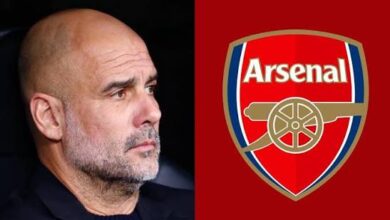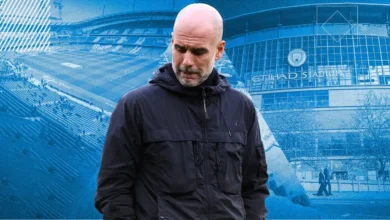Tottenham’s Transfer Revolution: Analyzing Thomas Frank’s Impact and Summer Strategy

The appointment of Thomas Frank as Tottenham Hotspur’s new head coach has ushered in a new era of ambition and strategic thinking at the north London club. After years of inconsistency and managerial changes, Spurs appear to have found their direction under the Danish tactician, whose success at Brentford has translated into bold moves in the transfer market that signal a genuine intent to compete at the highest level.
Thomas Frank’s journey from Brentford to Tottenham represents one of the most intriguing managerial appointments in recent Premier League history. The 51-year-old Dane transformed the Bees from a Championship side into an established Premier League force, building a reputation for tactical innovation, player development, and creating a cohesive team identity that punched above its weight consistently.
Frank’s appointment at Tottenham came after Ange Postecoglou’s departure, despite the Australian having delivered the club’s first trophy in 17 years by winning the Europa League. This decision highlighted the board’s recognition that winning trophies alone wasn’t sufficient – they needed a manager who could build sustainable success and challenge for the Premier League title.
The Danish coach’s philosophy centers around high-intensity pressing, direct attacking play, and maximizing the potential of every player in his squad. At Brentford, he demonstrated an exceptional ability to identify undervalued talents and transform them into Premier League-quality performers. This skill set becomes particularly valuable at Tottenham, where the club has historically struggled to consistently identify and develop players who can make the step up to elite-level competition.
Frank’s tactical flexibility has also been a key factor in his success. While primarily associated with a direct, physical style of play, he has shown the ability to adapt his system based on the strengths of his squad and the demands of specific matches. This adaptability will be crucial at Tottenham, where the pressure to deliver results across multiple competitions requires a manager who can evolve and respond to different challenges throughout a long season.
The summer of 2025 has already seen Tottenham adopt a markedly different approach to the transfer market under Frank’s guidance. The club has moved away from the scattergun approach that characterized previous windows, instead focusing on targeted acquisitions that fit a clear tactical and strategic vision.
Central to this new approach is the emphasis on signing players who can immediately contribute while also having the potential for future development. This dual focus reflects Frank’s experience at Brentford, where he successfully balanced short-term competitive needs with long-term squad building. The strategy acknowledges that Tottenham must compete in the present while building a foundation for sustained success.
The club’s willingness to break transfer records demonstrates a new level of ambition and financial backing for Frank’s project. This represents a significant shift from previous seasons where Tottenham often appeared reluctant to make the decisive moves necessary to secure top-tier talent. The board’s support suggests they recognize that achieving their ambitious goals requires investment at a level commensurate with their competitors.
Frank’s influence on transfer policy extends beyond individual signings to the overall squad construction. His experience of building a cohesive unit at Brentford, where every player understood their role and contribution to the collective success, has informed Tottenham’s approach to creating a balanced and harmonious squad. This focus on team chemistry and tactical coherence could prove crucial in addressing the consistency issues that have plagued the club in recent seasons
Defense has emerged as a primary focus for Tottenham’s summer recruitment drive, reflecting Frank’s recognition that successful teams are built from a solid foundation. The emphasis on strengthening the backline represents a departure from the club’s traditional focus on attacking talent, highlighting a more mature and strategic approach to squad building.
The pursuit of high-quality center-backs aligns with Frank’s tactical preferences and his experience of building defensively solid teams. At Brentford, he demonstrated the importance of having defenders who could not only defend effectively but also contribute to the team’s attacking play through their distribution and set-piece threat. This multi-dimensional approach to defensive recruitment reflects a sophisticated understanding of modern football’s demands.
Frank’s preferred tactical systems often require center-backs who are comfortable in possession and capable of playing out from the back under pressure. This technical requirement has influenced Tottenham’s transfer targets, with the club prioritizing defenders who combine physical attributes with technical proficiency. The focus on versatile defenders who can operate in different systems provides Frank with the tactical flexibility he values highly.
The investment in defensive reinforcement also reflects lessons learned from previous seasons where individual errors and defensive frailties cost the team crucial points. Frank’s reputation for improving players and creating organized defensive units offers hope that Tottenham can address these historical weaknesses and build the defensive stability necessary for title challenges.
One of Frank’s most impressive achievements at Brentford was his ability to integrate young players into the first team while maintaining competitive standards. This skill has particular relevance at Tottenham, where the club has significant investment in academy development but has historically struggled to provide clear pathways for young players to establish themselves in the senior squad.
The summer transfer strategy has included targeted acquisitions of promising young players, suggesting that Frank intends to continue his philosophy of blending experience with youth. These signings represent long-term investments that could provide both immediate squad depth and future value, aligning with the club’s financial sustainability goals while building competitive strength.
Frank’s track record of player development extends beyond just young players to encompass the improvement of established professionals who may have stagnated at previous clubs. His ability to unlock hidden potential in players could prove particularly valuable at Tottenham, where several squad members have shown flashes of brilliance without consistently delivering elite-level performances.
The integration of youth development with first-team strategy also reflects Frank’s understanding of modern football economics. Developing homegrown talent not only provides competitive advantages but also creates financial value that can be reinvested in the squad. This sustainable approach to squad building could prove crucial in maintaining competitiveness while adhering to financial regulations.
Frank’s appointment has brought tactical innovation and systematic thinking to Tottenham’s approach. His experience of implementing clear playing philosophies while maintaining tactical flexibility provides the club with options that previous managers may not have offered. The ability to adapt formations and playing styles based on opposition and circumstances has already influenced the club’s transfer strategy.
The summer signings reflect a desire to build a squad capable of operating in multiple tactical systems. This flexibility allows Frank to adjust his approach based on specific match requirements, injury situations, or tactical matchups against different opponents. The versatility of new signings suggests careful consideration of how different players can contribute across various tactical setups.
Frank’s emphasis on high-intensity pressing and direct attacking play has influenced the profile of players being targeted. The club has prioritized athletes who can cope with the physical demands of his preferred playing style while possessing the technical ability to execute complex tactical instructions. This balance between physicality and technique reflects the modern game’s requirements.
The tactical evolution under Frank also extends to set-piece situations, where his innovative approach at Brentford yielded significant dividends. Tottenham’s transfer strategy has considered players’ contributions to both defensive and attacking set-pieces, recognizing these situations as crucial opportunities to gain competitive advantages. This attention to detail in recruitment reflects Frank’s comprehensive approach to team building
The financial aspect of Tottenham’s transfer strategy under Frank represents a mature approach to squad building that balances ambition with sustainability. The willingness to make significant investments in key positions demonstrates the board’s commitment to supporting Frank’s vision while maintaining fiscal responsibility.
The focus on players with resale value aligns with Tottenham’s need to maintain financial flexibility while building a competitive squad. This approach recognizes that successful squad building often requires making difficult decisions about player sales to fund new acquisitions. Frank’s experience of working within budget constraints at Brentford provides valuable insight into maximizing resources effectively.
The strategic timing of transfers also reflects sophisticated planning and market awareness. By identifying targets early and acting decisively, Tottenham has avoided the inflated prices often associated with late-window panic buying. This proactive approach suggests improved planning and decision-making processes under Frank’s influence.
The long-term financial implications of current transfer decisions extend beyond immediate costs to consider contract structures, wage implications, and potential future values. This comprehensive approach to financial planning indicates a more mature and strategic mindset that could prove crucial in maintaining competitiveness over multiple seasons
Frank’s appointment comes with the immediate challenge of preparing Tottenham for Champions League football, having qualified through their Europa League triumph. The summer transfer strategy has been influenced by the demands of competing across multiple competitions, requiring squad depth and tactical versatility that previous seasons may not have demanded.
The experience of managing in European competition, while new to Frank personally, builds on his tactical acumen and adaptability demonstrated in domestic competitions. The transfer strategy has considered the unique demands of European football, including the need for players comfortable with different playing styles and tactical approaches encountered against international opposition.
Squad rotation and player management become crucial factors when competing in multiple competitions simultaneously. The summer signings reflect an understanding of these demands, with acquisitions providing both quality and depth across key positions. This comprehensive approach to squad building should enable Frank to maintain competitive standards across all competitions.
The psychological and tactical preparation for European competition also influences training methods and player development programs. Frank’s emphasis on mental resilience and tactical discipline, evident in his work at Brentford, provides a foundation for the step up to Champions League football. The transfer strategy supports this preparation by bringing in players with relevant experience and mentality.
The current transfer window represents just the beginning of Frank’s long-term project at Tottenham. The strategic approach to player recruitment suggests careful planning that extends beyond immediate needs to consider future squad development and potential market opportunities.
Frank’s network of contacts and understanding of player markets, developed during his time at Brentford, provides Tottenham with access to talents and opportunities that may not be available to other clubs. This insider knowledge could prove valuable in identifying undervalued players who can make significant contributions to the team’s success.
The changing landscape of football transfers, including financial regulations and market dynamics, requires adaptive strategies that Frank’s experience at a smaller club has prepared him to navigate. His understanding of working within constraints while achieving ambitious goals provides valuable perspective for Tottenham’s future planning.
The success of the current transfer strategy will ultimately be measured not just by immediate results but by the foundation it creates for sustained competitiveness. Frank’s track record suggests an understanding of the long-term thinking required to build truly successful teams, providing optimism for Tottenham’s future prospects under his guidance
Thomas Frank’s arrival at Tottenham Hotspur has catalyzed a transformation that extends far beyond simple managerial change. The strategic approach to transfers, tactical innovation, and long-term planning reflects a club finally embracing the comprehensive changes necessary to compete at the highest level consistently.
The summer transfer strategy demonstrates learning from past mistakes while embracing new opportunities for growth and development. Frank’s influence has created a clear vision that guides every aspect of squad building, from individual player profiles to tactical systems and financial planning.
The early signs suggest that Tottenham has found not just a manager but a leader capable of creating the cultural and tactical transformation necessary for sustained success. The transfer strategy provides the foundation for this transformation, combining immediate competitive improvements with long-term strategic thinking.
As the new season approaches, the true test of Frank’s methods and transfer strategy will begin. However, the comprehensive and thoughtful approach to squad building provides optimism that Tottenham can finally achieve the consistency and success that has eluded them for so long. The revolution has begun, and the early indicators suggest it could herald a golden era for the north London club.















